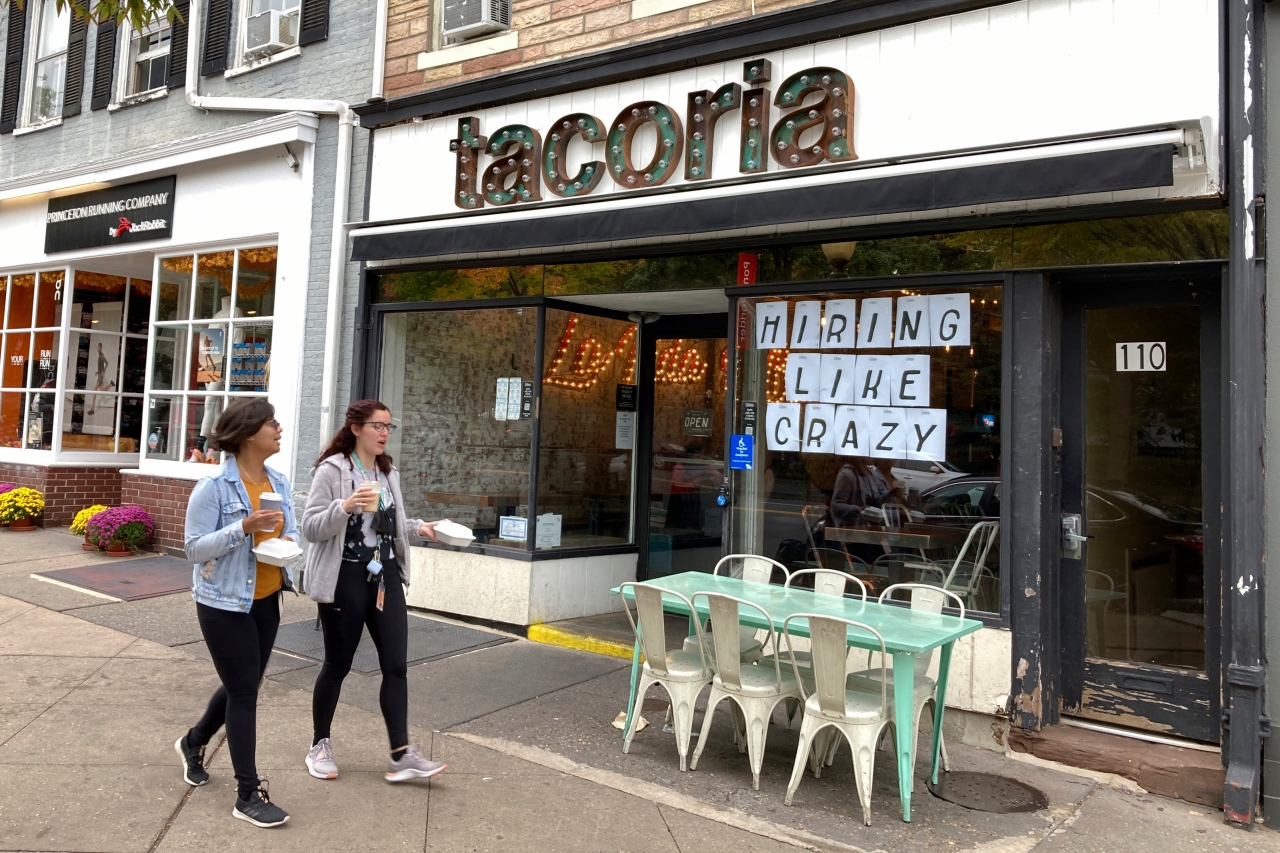COLUMBUS, Ohio (WCMH) — Americans continue to quit their jobs in record numbers in a trend economists have dubbed “The Great Resignation.” But those workers aren’t leaving the labor force — they’re simply searching for better opportunities.
Those whose jobs got harder during the pandemic are now looking at the door and wondering if the grass — and paycheck — is greener on the other side.
“It wasn’t a gamble for me. If anything, I was gambling on myself,” said 37-year old Ben Baker, who spent most of his adult life in retail, managing stores in Ohio malls.
In April, he decided enough was enough.
“I was probably working, you know, 60 to 65 hours a week,” Baker said. “When COVID hit and I saw and experienced how rough the industry was, I started looking at a plan B and that plan B for me was to get involved in and make a turn into technology somehow, someway.”
After a 14-week coding course with TechElevator, Baker said he is now an app developer for Victoria’s Secret.
He’s far from the only one moving on. The Department of Labor reports a record 4.4 million Americans quit their jobs in September, adding pressure to an already existing labor shortage.
“The part of the economy that was hit worse during the COVID downturn was in-person sorts of jobs and those are the companies, whether they’re restaurants or bars or gyms, that in-person contact, that right now have the most need of workers,” said David Berson, chief economist with Nationwide.
Counterintuitively, Berson said it’s actually a sign the economy is doing much better than in the early days of the pandemic.
“It may not be better if you’re an employer because it means in order to keep people or to get somebody else to fill a role, you’re going to have to pay a higher wage,” he said. “But for the people who are leaving their jobs, they’re only doing it because they think they’ll be better off, that they can get another job, a better job, or they’ve already been offered a better job.”
Berson predicts the “Great Resignation” will continue for at least a few more months, if not longer, because people have options.
“Companies are really looking for workers right now, to an extent I can’t recall in the past,” Berson said. “Will it last? Probably not, but it’s very good right now and it’s not just for the Christmas season. So until we get a large number of people coming back into the labor force, I think we’ll see quit rates stay relatively high and we’ll see wage gains remain pretty strong.”
Baker said he enjoys his new job a lot more than his past work in retail.
“I don’t have to do that physical labor, that physical work,” he said. “Emotionally, I’m not dealing with call-offs. I’m not dealing with hiring, letting people go. I’m not dealing with the constant turnstile of training people just to see them walk out the door and go down to the next store because they’re able to pay twice as much.”
Baker said making a leap might not be for everyone, but looking back, he has no regrets.
“For me, while it was a radical shift. It was probably one of the best decisions I’ve ever made. With family time, it’s been a lot better for me to be able to spend time with my family, going to my kids’ soccer games, just being around them as they’re growing up.”
